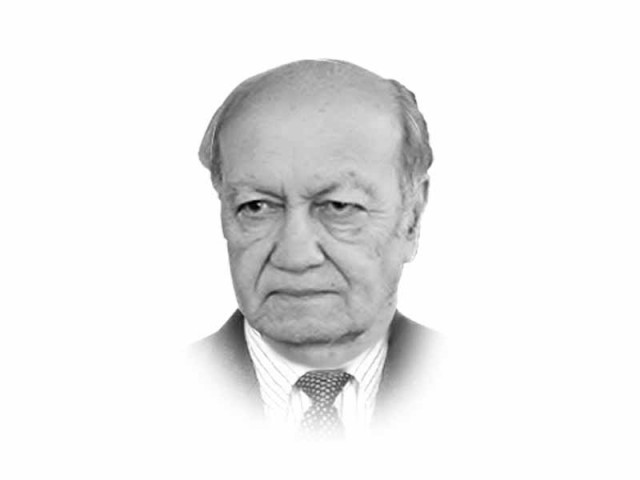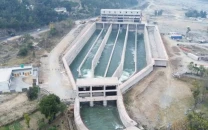The centrality of Afghanistan
Pakistan continues to remain under pressure from both the US and Afghanistan for its perceived support of Taliban

The writer is a retired lieutenant general of the Pakistan Army and a former federal secretary. He has also served as chairman of the Pakistan Ordnance Factories Board
The present situation is not different, as we continue to remain under pressure from both the United States and Afghanistan for our perceived support of the Taliban. Washington’s demand is to bring the Taliban to the negotiating table, failing which deny them and their families space in Pakistan.
Considering that relations with no other country are as crucial for our security, external connectivity and internal stabilisation than Afghanistan, a fresh reappraisal of policy should be a high priority for the PTI government. It was therefore not surprising that Foreign Minister Qureshi’s first choice of foreign destination was Kabul, a reaffirmation of the importance of this relationship. Army leadership and General Bajwa especially have been pursuing this goal with single-mindedness of purpose. The establishment of the Pakistan-Afghanistan five joint working groups, focusing on ensuring a comprehensive engagement for countering terrorism, intelligence sharing, military, economy, trade and transit interaction, refugee repatriation and connectivity were a consequence of this effort. A few committee meetings have taken place but mutual suspicion persists even if there is greater restraint in voicing grievances.
Tight border control is likely to mitigate insurgency and provide a strong incentive for greater cooperation between the two countries. Despite Pakistan’s assurance that fencing the western border would be mutually advantageous to prevent, or at least minimise, militants, drug traffickers and unauthorised crossings was misinterpreted by Kabul as bringing a one-sided closure to the issue of the Durand Line.
Afghanistan’s true potential can only be realised when there is peace and it serves as a conduit for transit to Central Asia and other countries of the region through trade and energy transmission.
As representatives of the Taliban and the US are engaging in Doha there is a glimmer of hope that if earnestly pursued a political solution could eventually be found.
Pakistan’s responsibility lies in putting maximum pressure on the Taliban leadership to show flexibility in its position and accept a political solution. If they fail to comply and keep dragging the talks in the hope of gaining militarily we should push the Taliban hard denying them or their families any space in Pakistan. This is not to favour the US or the Afghan government but in our national interest. As already mentioned no genuine peace in Pakistan is possible without a modicum of stability in Afghanistan. More significantly Pakistan cannot exploit its economic potential or its strategic advantage unless Afghanistan stabilises and both develop a relationship of mutual trust. This is the level of Pakistan’s stake in Afghanistan’s stability.
The integration of Fata with Pakistan and its administrative linkage with K-P are developments if properly executed can go a long way in bringing peace and stability not only in the western parts of our country but its adjoining parts in Afghanistan.
The Taliban’s current military edge over the Afghan forces that remain in disarray and are unable to hold ground without the US support should not be interpreted as if victory of insurgents is in sight. However, it is difficult to gauge the US’ intentions whether it is fighting to stabilise Afghanistan or aims at establishing a permanent foothold in this Muslim-dominated region. Irrespective of its motives all indications are the US will not abandon Afghanistan in the near future as its strategic interests are at stake. The irony is that Afghanistan because of its internal weaknesses have become the power play of all the regional powers be it India and Pakistan, Russia and the US or even Saudi Arabia versus Iran. An equally troubling feature is that Afghanistan due to adverse effects of a prolonged civil war and poor governance has been unable to develop a self-sustaining economy and remains heavily dependent on foreign assistance.
What has been strikingly missing is a positive and coordinated role by major Muslim countries in peace efforts and economic development.
The involvement of Zalmay Khalilzad as the US especial envoy for Afghanistan and recent meetings with Taliban leaders in Qatar give rise to guarded optimism. The Taliban have been demanding the withdrawal of US forces from Afghanistan. This may be their bargaining position but may be prepared to accept the presence of a specific number of troops with a timeline to gradually thin out. The question of power sharing with the Afghan government and changes to the constitution if any would have to be worked out if the Taliban-US talks were to progress.
In this grim Afghanistan situation, Pakistan’s relations with Washington at least in the near term will be governed on how we are perceived to be facilitating the peace process. CPEC and our close relations with China is another factor that conflicts with the US’ proclaimed interests in the region but that these are more of a strategic nature that we will have to contend with and manage deftly.
The Pakistan-India factor also looms large in how Pakistan looks at Afghanistan. President Trump’s current policy of giving India a major role in Afghanistan makes Pakistan undeniably suspicious and increases the military’s role in influencing the Afghan policy. An overall strategic approach to address Pakistan’s legitimate concerns about India’s growing presence as a protagonist if addressed would contribute towards peace. Moreover, a general improvement of relations between India and Pakistan would have positive fallout on Afghanistan.
The cost of 17 years of civil war in Afghanistan has been horrendous not only in lives but has damaged the very structure of their society. Pakistan despite the enormity of the challenge must continue its efforts at promoting peace and stability in Afghanistan.
Published in The Express Tribune, October 17th, 2018.
Like Opinion & Editorial on Facebook, follow @ETOpEd on Twitter to receive all updates on all our daily pieces.













COMMENTS
Comments are moderated and generally will be posted if they are on-topic and not abusive.
For more information, please see our Comments FAQ